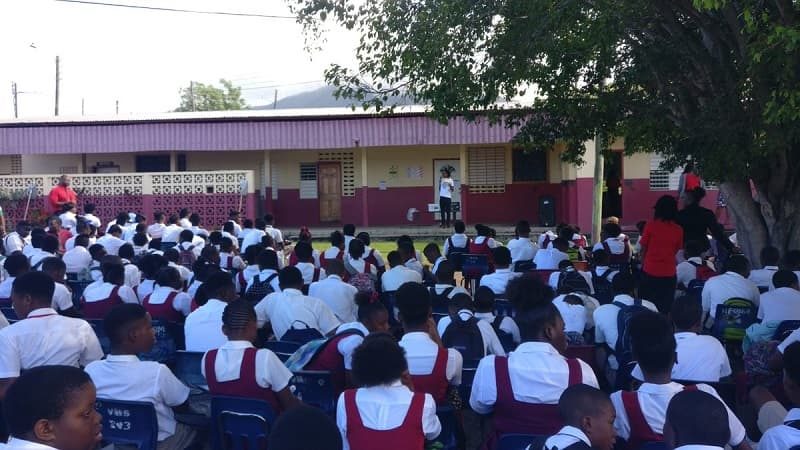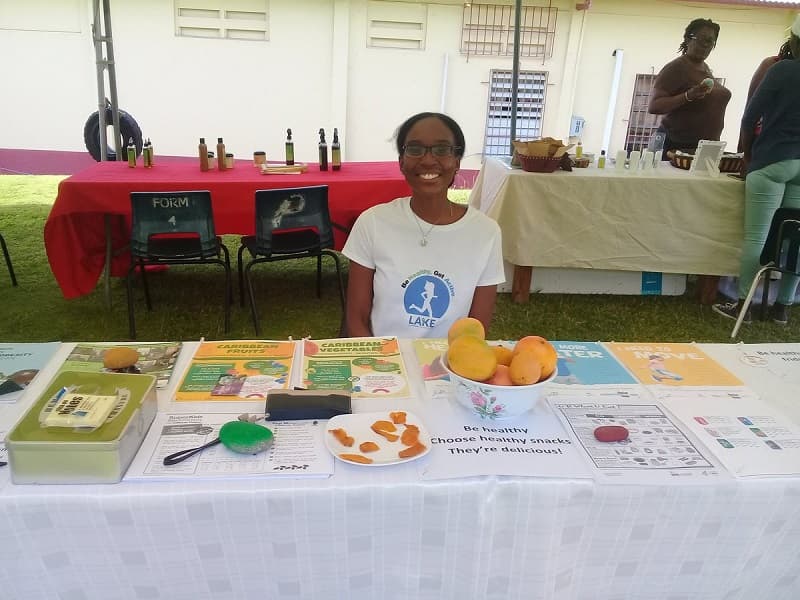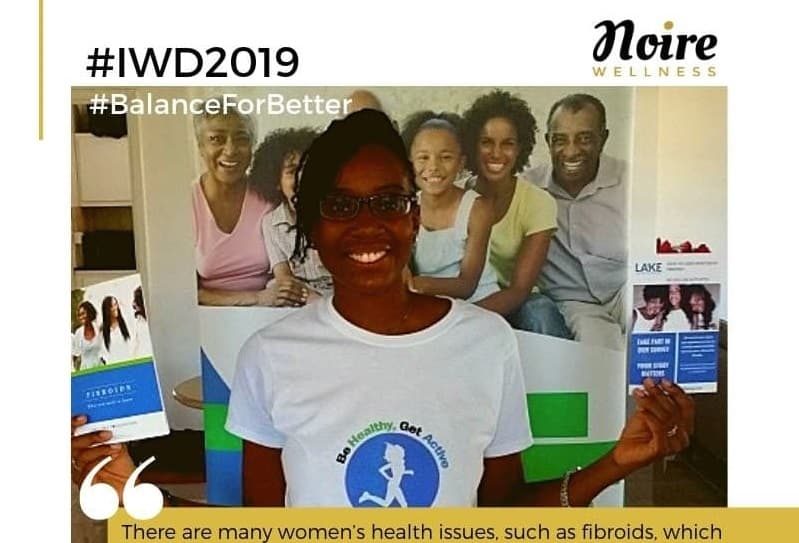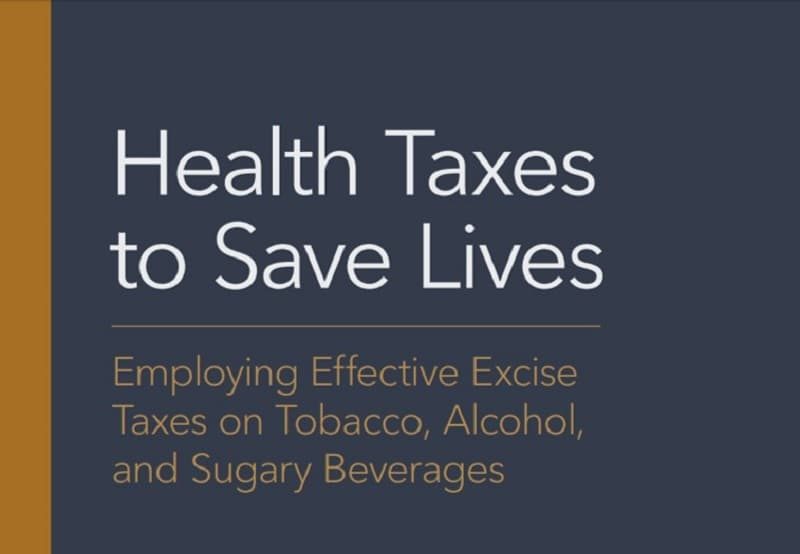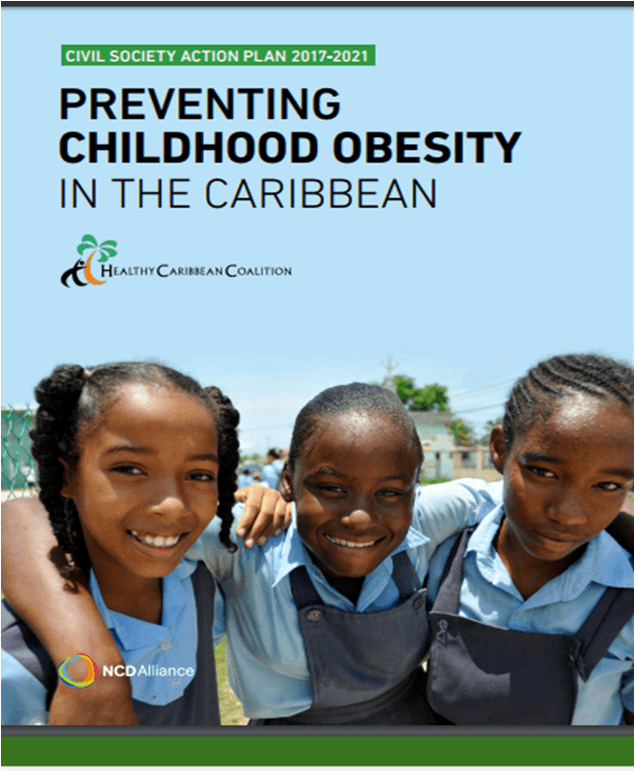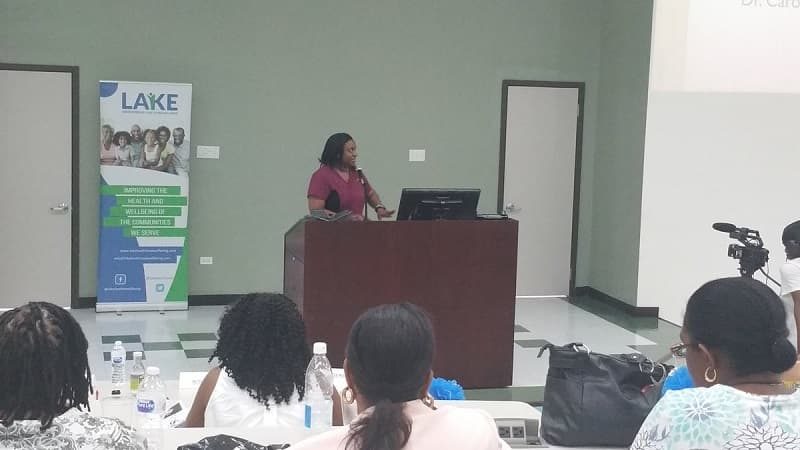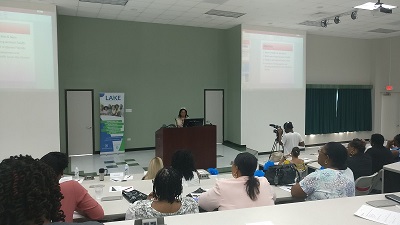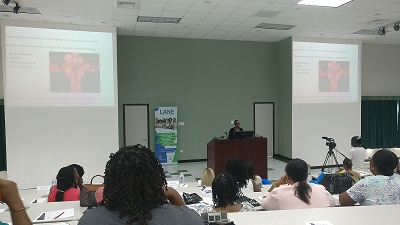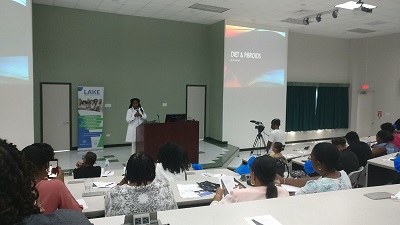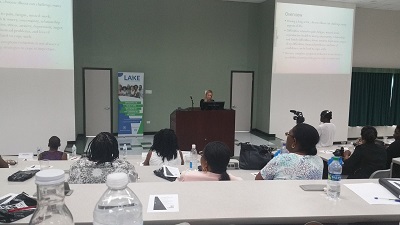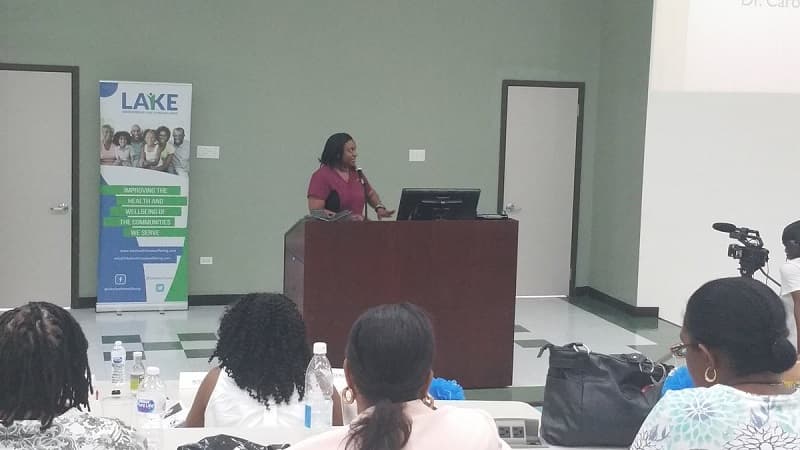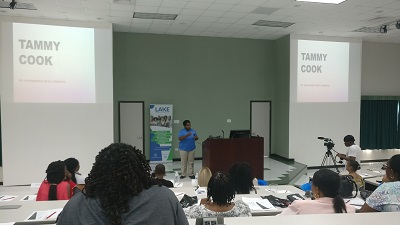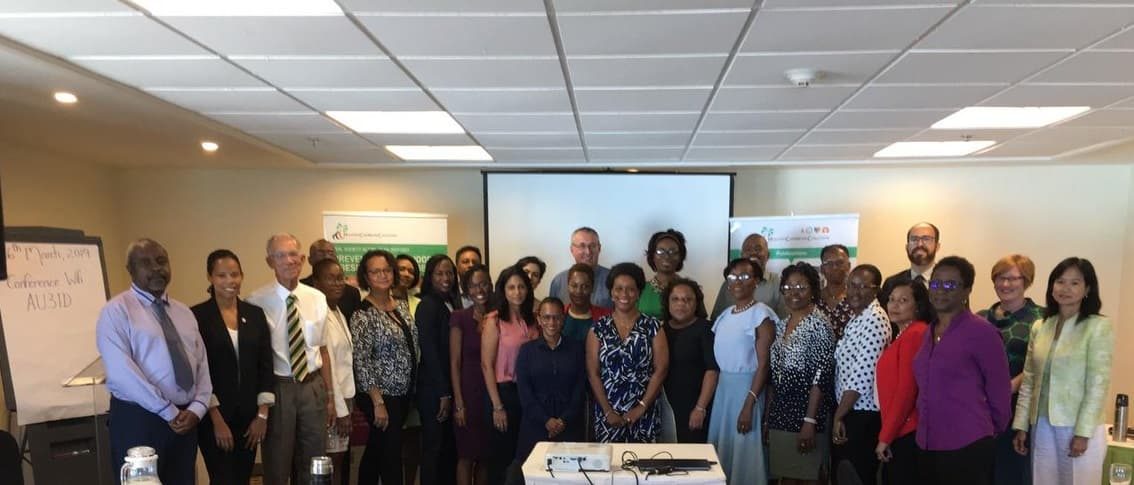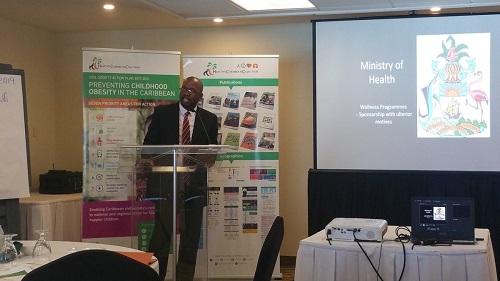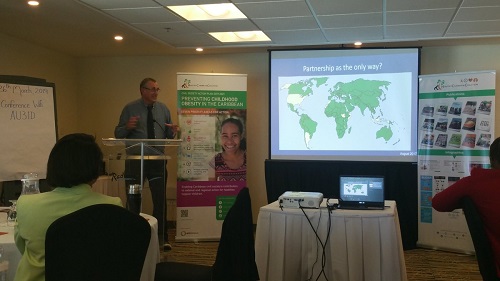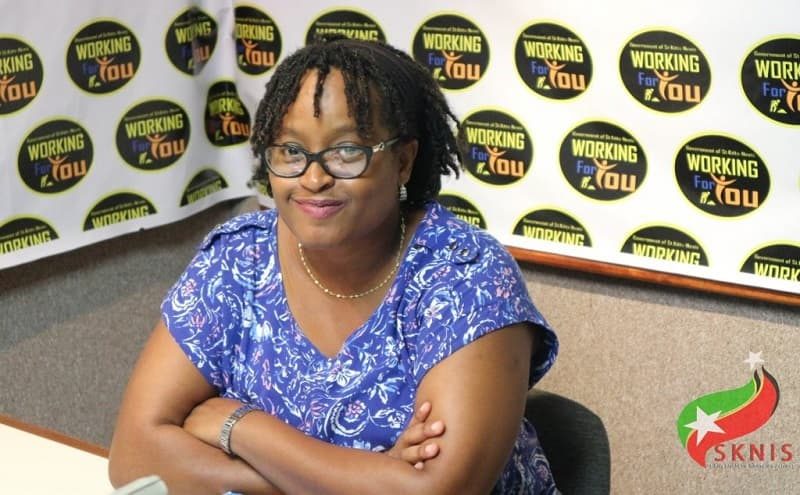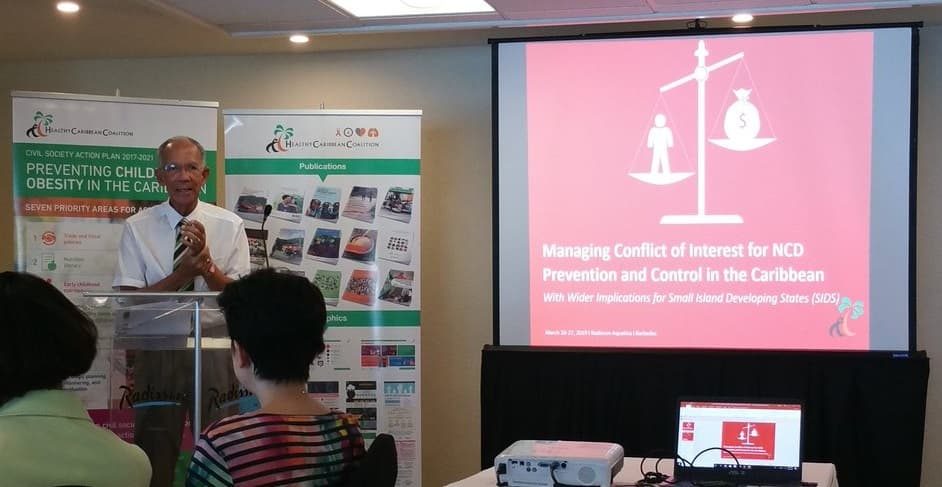On 30th March, we were delighted to join forces with Because We Care to host our first Girl Talk event.
Girl Talk is our new event series that aims to provide a forum for informative, informal and empowering discussions about women’s health. We hope that these events will enable women to take control of their health and that of their families, and therefore build a stronger, healthier nation.
Our first event focused on fibroids. This is an area that is often overlooked leading to a lack of awareness, information, and support for those who have been affected. We want to correct that. We also want to overcome the stigma that can be associated with fibroids by creating a safe space to discuss fibroids, its impact on women and solutions.
We were delighted to have a panel of esteemed speakers covering various aspects of fibroids. Speakers included:
- Dr Hazel Laws, Chief Medical Officer, St Kitts – Fibroids and Women’s Health in St Kitts
- Dr Deborah Williams, Professor of Pathology – What Are Fibroids?
- Tammy Cook – My Fibroids Story
- Dr Lescott, Medical Doctor – Fibroids and Nutrition
- Dr Pereira, Clinical Psychologist – Living well with fibroids and chronic illness
- Dr Lawrence, Medical Doctor – The treatment of fibroids
We also had a small wellness market, fantastic raffle prizes and free health checks for all attendees.
A Summary of the Day
Fibroids and Women’s Health in St Kitts and Nevis

The event started with a presentation by Dr Hazel Laws who provided an overview of women’s health in St Kitts and Nevis.
Dr Laws explained that data suggests that women in the Federation are more likely to be affected by non-communicable diseases (NCDs) like cancer and diabetes, but the data may not be giving the full picture as it may be that women are more likely to visit their doctor and seek help than men, and this is what the data is reflecting.
Dr Laws also summarised some of the work that the Ministry of Health is doing to improve women’s health through projects like:
- The ASSIST (Applying Science to Strengthen and Improve Systems) Project which is exploring improving the quality of care offered to pregnant women and children
- WHIP (The Women’s Health Improvement Plan)
Then Dr Laws focused specifically on fibroids and explained that 78 women in St Kitts and Nevis had a surgical intervention for fibroids in 2018. Furthermore, anecdotal evidence collected from OBGYN specialists suggest that over 60% of 35-50-year-old women in St Kitts and Nevis have uterine fibroids with 30% of these women being symptomatic.
Based on this data, Dr Laws stated that fibroids should be raised as a public health concern especially as the lived experience of women with fibroids can be very challenging and very often women suffer in silence. She ended by saying that there is a need to educate women and improve access to care.
What Are Fibroids and their Impact on Women

Next on the agenda was Dr Williams who provided an overview of what fibroids are and touched on their impact on women.
Dr Williams raised some concern that there is little research being conducted on fibroids so the information available on the causes is very limited which then makes it hard for women to take steps to prevent or reduce their risk of developing fibroids.
In summarising the impact of fibroids on women, Dr Williams used data from the US which showed the following with respect to quality of life:
- 28-40% of women with fibroids report missing work because of their symptoms
- 25% reported that having fibroids prevented them from meeting their career potential
- Black women with fibroids are 77% more likely to miss work than their white counterparts
- 36% reduction in work productivity
Dr Williams explained that fibroids also affect self-image with research showing the following:
- 68-88% of women feeling self-conscious or embarrassed about their stomach size and appearance
- 22-51% stated that having fibroids had a negative influence on their femininity and sexuality
- 44% reported painful intercourse
- 60% reported a lack of interest in sex
- 53% said it negatively impacted their relationship with their husband
- 14-46% stated it affected their ability to take care of their home and children
Dr Williams ended her presentation by summarising the significant impact that fibroids have on women and society:
- Fibroids present a significant burden for those affected
- It has an enormous economic impact
- Fibroids negatively affects work productivity, sexuality, self-image, relationships, social and emotional wellbeing
- Black women and younger women are more affected by fibroids
- Many women delay seeking treatment often for several years
Diet and Fibroids
 We also heard from Dr Lescott who gave a presentation on diet and fibroids. Similar to Dr Williams, Dr Lescott also explained that there is limited research exploring this topic, but the limited amount of data on diet and fibroids suggests the following:
We also heard from Dr Lescott who gave a presentation on diet and fibroids. Similar to Dr Williams, Dr Lescott also explained that there is limited research exploring this topic, but the limited amount of data on diet and fibroids suggests the following:
- Fibroids are more common in women who consume more red meat and alcohol
- For women who drink at least one beer a day, there was a 50% increase in their risk of developing fibroids
- Compounds from green tea may inhibit the growth of fibroids cells
- Women who consume more citrus fruits are less likely to develop fibroids, possibly due to the presence of flavonoids in citrus fruits
- Vitamin D was protective when it comes to fibroids
- Vitamin A from animal sources are linked to the development of fibroids (not vitamin A from fruits and vegetables)
Living with Fibroids and Chronic Illness

Dr Pereira then covered a very important but often neglected topic – how to live with an ongoing illness like fibroids.
Many women with fibroids are forced to live with several uncomfortable symptoms, in some cases for many years. Dr Pereira explained that this can challenge many aspects of a woman’s life.
Some of the challenges that women may encounter include difficulties related to pain, fatigue, missed work, reproductive health issues, uncertainty, stress, anxiety, relationship and family difficulties, loss of self-confidence, financial issues and more. All these issues can be very hard to cope with.
Because complete eradication of the symptoms and effects of fibroids is not always possible, it is important that women learn strategies to cope. This can be achieved through cognitive behaviour therapy (CBT) which focuses on looking at how we think about certain situations in order to develop resilience so we can better deal with the challenges that are associated with living with fibroids.
Dr Pereira also demonstrated one simple CBT technique, relaxation breathing, which is used to reduce the symptoms of anxiety.
Treatment of Fibroids

We also heard from Dr Lawrence who gave an excellent presentation on the treatment of fibroids. Dr Lawrence explained that treatments included surgery e.g. (hysterectomy, myomectomy), medication to treat the symptoms or shrink the fibroids, non-surgical options (e.g. embolization) and MRI-guided procedures. Dr Lawrence explained that some of these procedures are not available in St Kitts and Nevis.
Dr Lawrence gave attendees the opportunity to ask any questions they had about fibroids, treatment and symptoms. This raised a number of interesting issues such as the challenges associated with having both sickle cell anaemia and anaemia related to fibroids, the struggle that many women have with making treatment decisions and fertility concerns.
My Fibroids Story

In addition to the doctors who presented, we were grateful to Tammy Cook who delivered a powerful and moving talk about her personal experience with fibroids. Ms Cook bravely shared the many challenges she experienced and based on this experienced encouraged women to:
- Get to know their bodies
- Visit the doctor promptly if something doesn’t feel right
- Get a second opinion if you’re not happy with your care.
Conclusion
The event ended with a short presentation from Abi Begho who summarised the day and explained what resources, information and support are available to women which included a self-management course which we’re hoping to organise in May specifically for women with fibroids.
Thank you!

We had a great day and would like to thank everyone who attended, asked questions, and shared their story.
We’d like to thank all the speakers for their thought-provoking, informative presentations and all the vendors – Mother Becky Bush Tea, Sugar Town Organics, Love the Skin You Wear, Pure Niceness By Winnielle and Rose Catering.
We’d also like to say a big thank you to the Chop Shop, the Emerald Mist Spa, Mother Becky Bush Tea, Love the Skin You Wear and Sugar Town Organics for donating lovely raffle prizes.
And, finally we’d like to thank the staff and students UMHS for all their support as we organised this event, we are very grateful.
More Information
For more information on fibroids, you can:
You can also keep up-to-date with our fibroids events and news by subscribing to our fibroids newsletter below.







